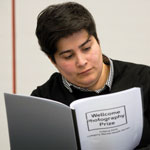Dr Aiysha Malik tells Pulse about a day out of the ordinary judging the Wellcome Photography Prize 2020
9:30am
I arrive at the Wellcome Trust in London and meet the other judges. We are briefed on the importance of the photography prize to Wellcome and our role as judges. I was chosen because the theme is mental health. I started my career as a GP and developed an interest in mental health through that. Now, I am technical officer in the Department of Mental Health and Substance Use at the World Health Organisation headquarters.
10:15am
We dive into the first two categories – hidden worlds and medicine in focus. We begin with an overview of all the entries, then create a shortlist.
Hearing the stories behind the images helps to bring them to life. Giacomo Infantino’s photo Before Waking Up4, of a surgeon anxiously looking in on a patient he has just operated on, is powerful. Medical doctors are relied on for their expertise – yet the personal impact of the job is often overlooked. Health workers have poor mental health outcomes and this picture captures that additional level of unseen care. This photograph is even more poignant now with the additional stresses of Covid-19.
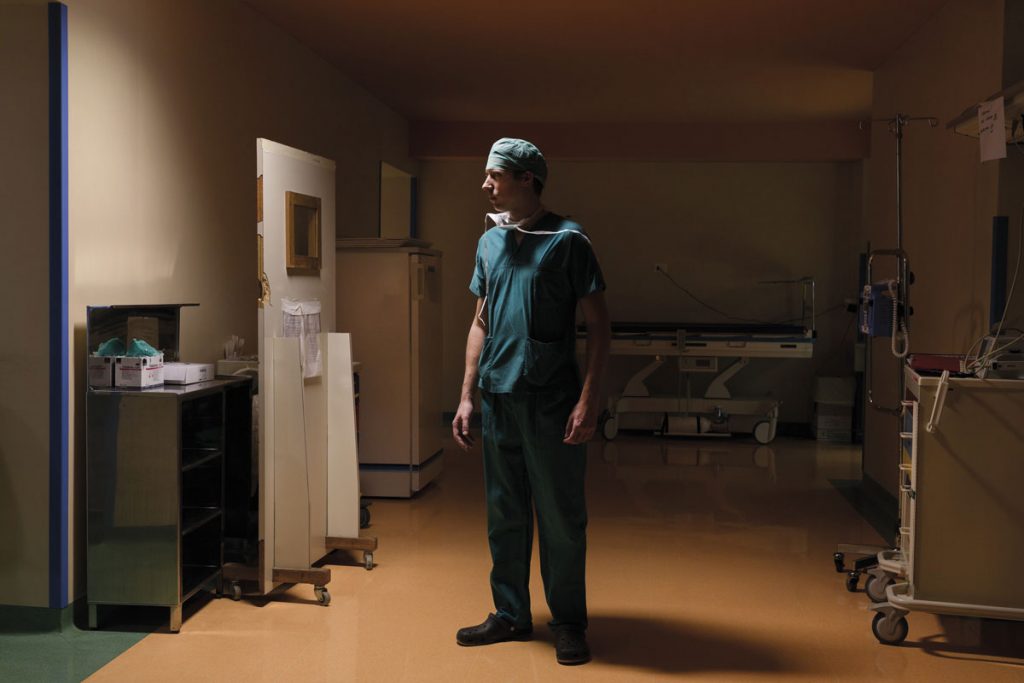
10.45am
Looking at the photo Blood Speaks3, by Poulomi Basu, I see the complexities of global health issues in a single image. A woman has just given birth in a community where women are ostracised because of bleeding. She has been isolated for 15 days, affecting her wellbeing and causing health complications. I am struck by the social and health issues that this photo shows and the disparities in access to care, as she is being carried to the closest hospital, which is a three-hour walk.
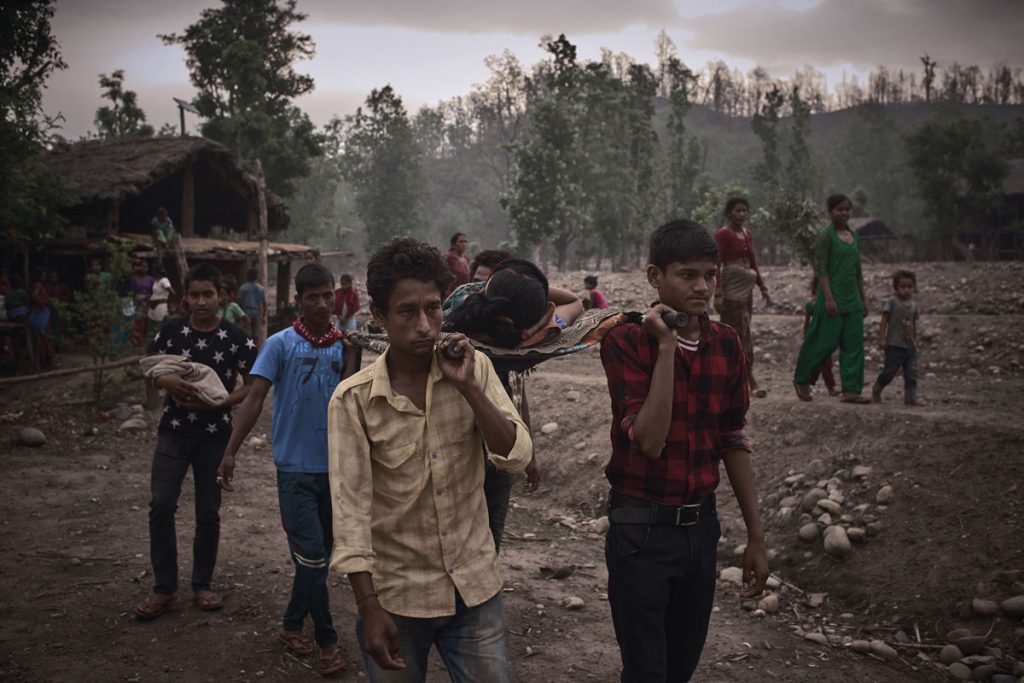
1:00pm
We break for lunch. I am excited to speak to the other judges, each with a huge amount of experience. Siân Davey is a photographer and a psychotherapist; John Moe runs the Hilarious World of Depression podcast; and Dr David Nott, consultant surgeon and war zone volunteer, who I learned about during my university days.
1:55pm
After lunch we begin judging the mental health entries, the category I’m most looking forward to. I am impressed by the interpretations, touching on so many aspects of mental health, including anxiety and depression, addictions, suicide, and issues such as childhood sexual abuse and gender incongruence.
I don’t see any stereotypical depictions of mental health, for example people in shackles, which perpetuate stigma and prejudice. I see stories of strength, stories of recovery and stories of coping. I reflect on how this view could help change public opinion on mental health.
2.05pm
One image I know will stay with me is Holding on to Daddy by British photographer Benji Reid1. It is visually beautiful, and so is its message. It shows a father who suffers from depression floating away while being tethered to his daughter, a metaphor for the protective comfort she offers. This photo is also important as its subject is a black male. Men are less likely to seek mental health support and the rates for suicide are three times higher in men in high-income countries, compared to women. Access to the appropriate care can also be affected by racial inequalities.
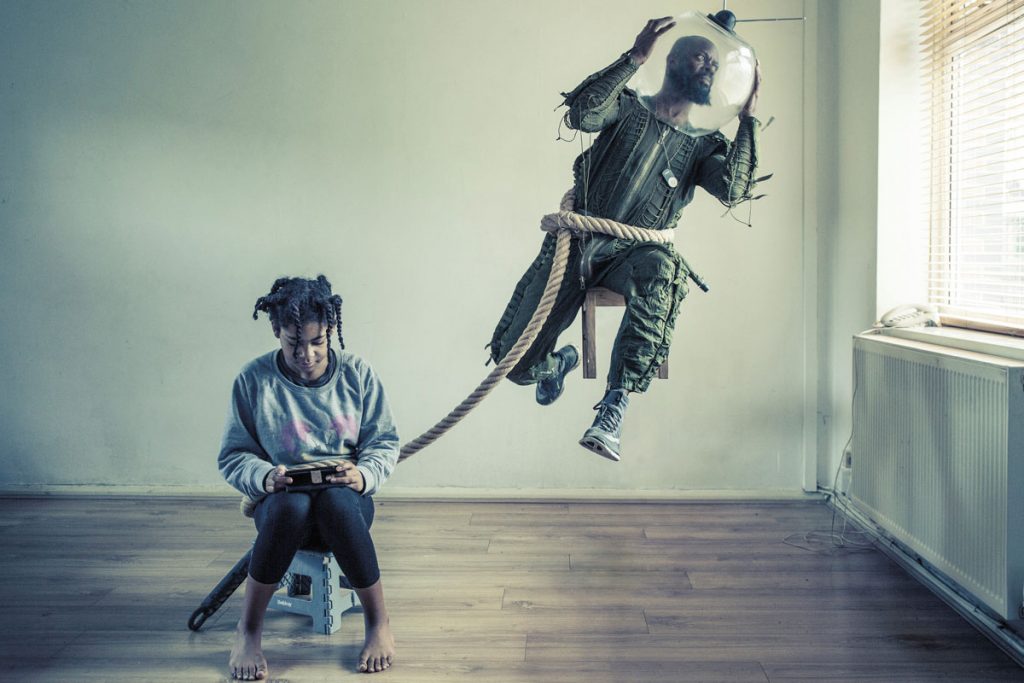
I am also struck by Nina, 3 Degrees, by Tom Merilion2, which shows a woman who swims each morning to reduce her anxiety. Self-care is an important way of coping with the stresses of everyday life.
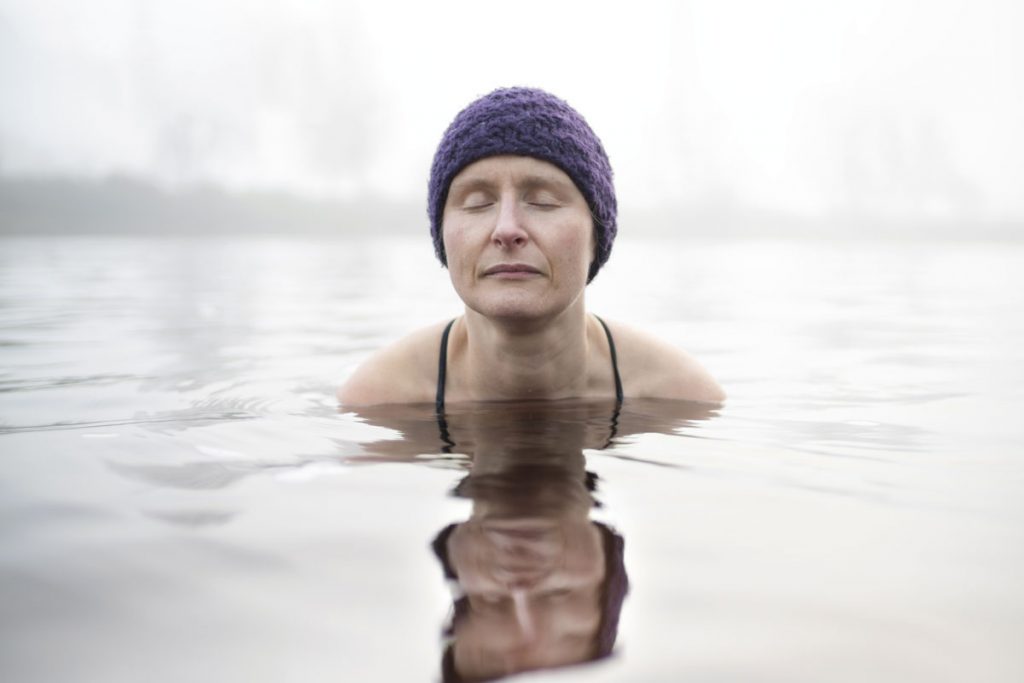
6:00pm
We review the final category – social perspectives. I enjoyed having the opportunity to think creatively. We have another day of judging tomorrow.
Wellcome is determined to transform how we understand, fund and address problems in mental health and has recently committed £200m to develop a new generation of approaches and treatments for anxiety and depression. As part of this research, Wellcome is interested to hear from GPs about their experiences with patients and mental health treatments. If you would like to share examples of practices or non-traditional treatments (not drugs or talking therapy) that have helped your patients, email [email protected].
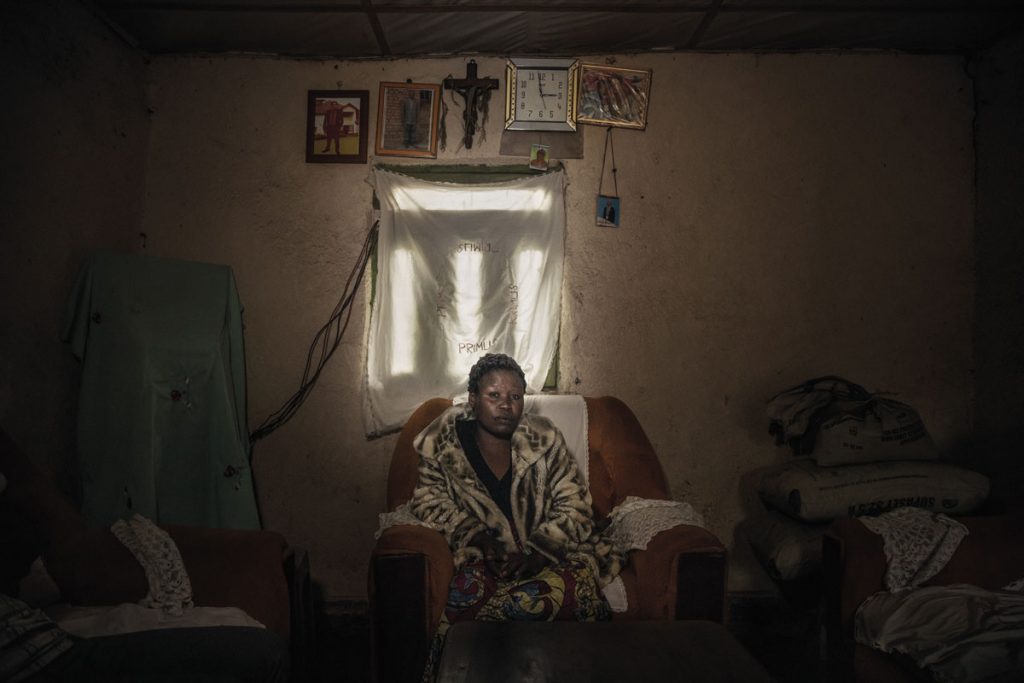
• See full shortlist and the winners at tinyurl.com/wellcome-shortlist
Profile – Dr Aiysha Malik
Roles – Technical officer in the Department of Mental Health and Substance Use at the World Health Organisation headquarters in Geneva. Previously, Dr Malik was a GP and later worked in the Barts Health NHS Trust at the Royal London Hospital
Photo references
1 Holding on to Daddy, Benji Reid, Manchester, UK, 2018
2 Nina, 3 Degrees, Tom Merilion, River Spey, Scotland, UK, 2019
3 Blood Speaks, Poulomi Basu, Surkhet district, Nepal, 2016
4 Before Waking Up, Giacomo Infantino, Milan, Italy, 2018
5 Ebola in the Democratic Republic of Congo, Marco Gualazzini, Butembo, DRC, 2019
Pulse October survey
Take our July 2025 survey to potentially win £1.000 worth of tokens



